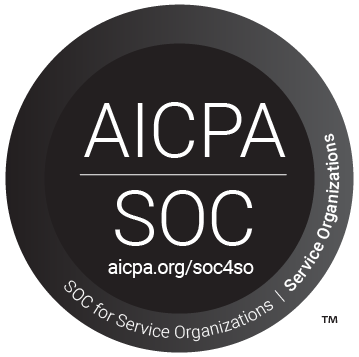Download Article (PDF)
Private Equity firms know how critical the first 100 days post-acquisition are: operational improvements, integration, and transformation efforts can determine whether an investment hits or misses its target returns. And increasingly, the speed and success of that process hinges on one critical enabler: technology.
Partnering with a Managed Service Provider (MSP) like Access One provides Private Equity firms with a way to bring immediate stability, scalability, and insight to newly acquired companies—without the delay or cost of building internal IT teams.
According to EY’s 2025 Global Private Equity Value Creation Study, 67% of PE leaders identify “technology acceleration and digital enablement” as the single most important driver of post-acquisition value, up from 52% just two years prior. Yet less than half of portfolio companies report having an integrated IT roadmap aligned to the PE firm’s operational plan.
That disconnect is where a managed IT partnership can be transformative.
1. Establishing Operational Continuity from Day One
Immediately after closing, many portfolio companies face inherited IT challenges: outdated systems, insufficient documentation, or limited in-house expertise. These gaps can stall integration and delay early wins that PE firms need to demonstrate progress to LPs.
In one recent engagement, rapid IT stabilization reduced our client’s planned downtime by over 45% within the first quarter for 3 PE-backed carve-outs, directly supporting their operational and growth roadmaps.
By engaging an MSP during or immediately after acquisition, firms can stabilize IT operations within the first 30 days. Access One’s structured onboarding process—covering infrastructure assessments, network mapping, and security audits—ensures a smooth transition while identifying critical vulnerabilities before they become costly surprises.
2. Creating a Unified Technology Foundation for Growth
 Most PE firms aim to drive growth through operational improvement, bolt-on acquisitions, or geographic expansion. However, inconsistent IT environments across portfolio companies often hinder scalability and create recurring integration costs.
Most PE firms aim to drive growth through operational improvement, bolt-on acquisitions, or geographic expansion. However, inconsistent IT environments across portfolio companies often hinder scalability and create recurring integration costs.
A Managed Service Provider offers a scalable way to standardize systems, processes, and tools across portfolio companies—creating a common technology foundation that supports both organic and inorganic growth.
For example, Access One’s managed cloud and communication services allow portfolio companies to unify infrastructure, adopt secure collaboration platforms, and gain visibility into performance metrics through centralized monitoring.
According to Bain & Company’s 2025 Private Equity Report, firms that implemented a standardized IT operating model across their portfolio achieved a 22% faster integration timeline and 19% lower IT operating costs than those managing technology in isolation.
3. Accelerating Cybersecurity Maturity Across the Portfolio
Post-acquisition, one of the most immediate risks is cybersecurity exposure. Acquired companies often have uneven controls, outdated policies, or unmonitored endpoints—all of which pose threats to the company and the entire portfolio ecosystem.
A proactive MSP partnership elevates your cybersecurity maturity rapidly, establishing a consistent baseline across all holdings.
Access One provides continuous monitoring, vulnerability management, and compliance support (including frameworks such as SOC 2, HIPAA, and NIST) to help firms reduce breach likelihood by up to 60%, aligning with benchmarks from IBM’s 2025 Cost of a Data Breach Report.
For PE firms, that translates to quantifiable value protection—preserving brand reputation and avoiding costly regulatory penalties. I look forward to touching more on this topic in the coming weeks.
4. Driving Efficiency Through IT Performance Metrics
 Data-driven insights are critical post-acquisition. MSP partnerships enable PE operations teams to monitor IT performance through dashboards and analytics that correlate system uptime, incident frequency, and service responsiveness with financial outcomes.
Data-driven insights are critical post-acquisition. MSP partnerships enable PE operations teams to monitor IT performance through dashboards and analytics that correlate system uptime, incident frequency, and service responsiveness with financial outcomes.
Access One equips firms with actionable monthly and quarterly reporting that links IT efficiency directly to EBITDA performance—empowering operators to make informed decisions around technology investments and resource allocation.
In practical terms, portfolio companies supported by a managed IT model often see 20–30% improvement in help desk resolution times, faster deployment of technology upgrades, and measurable reductions in IT-related operating expenses—all of which directly impact your firm’s runway for value creation.
5. Positioning for Scalability and Future Exit
The post-acquisition phase sets the foundation for a firm’s eventual exit. Buyers and strategic partners increasingly evaluate technology readiness and IT governance during due diligence.
By embedding Access One as a long-term MSP partner, PE firms ensure each portfolio company operates on documented, secure, and scalable systems that meet modern buyer expectations.
This forward-looking IT posture can add measurable enterprise value: according to the latest deal valuation metrics from PitchBook’s 2025 Q3 PE Breakdown, companies with formal IT governance and managed cybersecurity programs achieve exit valuations 8–12% higher on average compared to peers without them.
Conclusion: The MSP Advantage Beyond the Deal
Portfolio growth is no longer just about financial engineering—it requires a strong IT backbone that supports every area of your Value Creation Plan.
In the critical months following an acquisition, an MSP partnership provides Private Equity firms with speed, visibility, and confidence. From safeguarding your data to enabling scalability, Access One transforms IT from a major risk factor into a competitive advantage.
That’s because in the post-acquisition environment, technology isn’t a support function—it’s the foundation of sustainable value creation.

About the Author
John Kochvar, National Account Manager, leads our Private Equity team at Access One, with nearly 20 years’ experience partnering with PE-backed mid-market organizations across all industries, from manufacturing and business services to healthcare and information technology. He has a deep understanding of the modern Private Equity operating model and the role in which IT plays as a value creation tool at each stage of the investment cycle.














